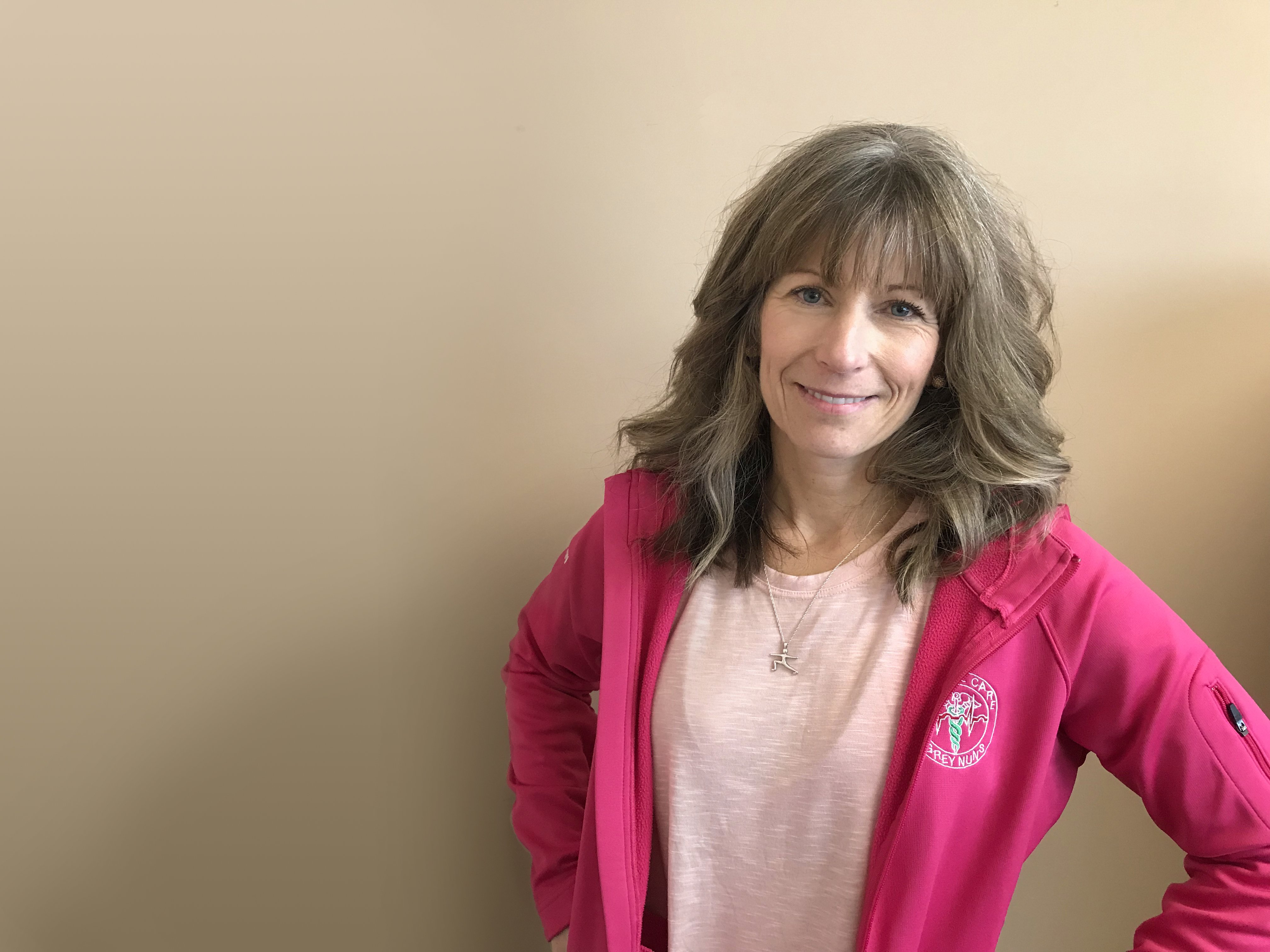When yoga became her saving grace
A nurse shares a personal story about struggles with mental illness

April 18, 2019
By Rey Rosales, Storytelling Advisor, Covenant Health
Even years after she left a controlling, violent and abusive relationship, she still suffered from nightmares and bouts of anger, anxiety and depression.
“You don’t realize until afterwards how deeply you are affected by it,” says Lisa Gaglione, a Registered Nurse at the Grey Nuns Community Hospital. “I suffered all the time with physical symptoms like aches and pains, headaches, anxiety and other medical issues.”
Her former partner not only controlled her but cut her off from friends and family. “You get caught up in it and you don’t think there’s a way out,” Lisa says.
She finally mustered the strength to end the relationship.
“It took a while for me to find the courage to leave and when I did I was also left with nothing. I was completely broke. But I knew I had to do it because had I stayed, I don’t think I would be here today.”
Years later, after she got married to her now husband of 13 years, Lisa says she still showed a lot of the psychological remnants of the abuse. “I’d be super angry all the time. Slamming doors, putting holes in walls and once ripping a blind out of the window and throwing it across the room. I was forgetful, irritated, anxious, sleep deprived and depressed. Certain things would trigger me into a white-hot rage.”

She says her husband supported her through some of the darkest times and encouraged her to seek counselling and medical help. When she did, the doctor came up with what she considers a surprising official diagnosis: post-traumatic stress disorder.
“I really struggled to figure out how to take care of myself.”
She took medication to help deal with anxiety and depression. Recovery was in fits and starts, she says. It wasn’t until she discovered yoga that she started feeling better and was able to manage her mental health issues well.
“I discovered yoga when I was pregnant with my first child,” she says. “I had some really good teachers who helped me realize that yoga is also about getting out of your head and connecting with yourself once more.”
While her husband and family motivated her to pursue a career in nursing, she says her two boys, aged eight and nine, really are the ones who inspire her to make sure she is taking care of her mental health and well-being. “I don’t want my kids growing up thinking that being angry and reactive all the time is OK.”
Lisa believes that, aside from medication and treatment, there are other things people can do to take care of their mental health. “Yoga is one of them because it is all about self-care and empowerment.”
Scott Aylwin, Senior Director for Mental Health at the Grey Nuns Hospital, says yoga can be used as an important part of a lifestyle management strategy.
“Yoga promotes mindfulness,” says Scott, who also happens to be a yoga practitioner. “Yoga puts a high premium on a practitioner being more comfortable and proficient at living in the moment.”
Scott notes activities such as yoga, meditation and mindfulness “work against a lot of the symptoms attached to mental illness. There’s a whole body of literature now that recognizes these things as important elements of managing mental illness.”
Knowing yoga works well in coping with mental health challenges, Lisa obtained her RYT200 certification in December 2017 and completed another 100 hours of training through the Yogafit for Warriors program shortly afterward.
Lisa teaches a specialized trauma-sensitive type of yoga designed for helping those suffering from mental health issues. “Some of my classes might be physically ‘easy’ but they can be mentally very challenging because they force you to slow down and tune in to things you may have been avoiding,” she says. She adds that participants tell her the sessions help them feel better about themselves and they even sleep better.
She currently holds sessions for various community members in Edmonton, including members of the Royal Canadian Mounted Police.
As an intensive care unit nurse, Lisa also wants to reach out and help her fellow caregivers. “We deal with death, trauma and tragedy all the time, and when you experience that for a long time, it has an effect on your heart, your body and your mind,” she says.
In the future, Lisa hopes to create a yoga class to help first responders—firefighters, police, emergency medical personnel and others—who deal with death and traumatic experiences in their line of work.